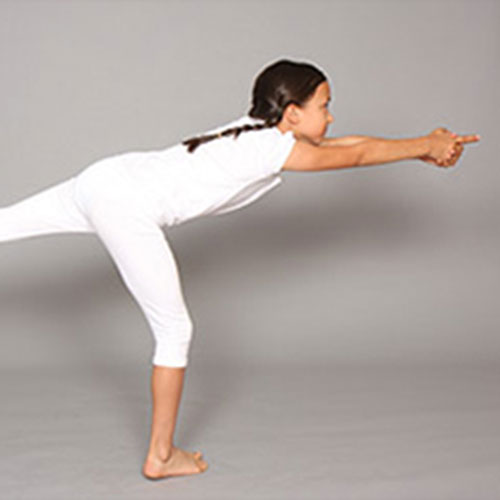
🎤 Interview: Katharina Kleinknecht
Interview: Katharina Kleinknecht
``The holistic view``
Ms. Kleinknecht, you have many years of experience as a yoga teacher and as a yoga instructor. Why does it make sense to do yoga?
There are many different reasons to do yoga. It can be about strength and flexibility, or about finding more peace and serenity, but also about concentration and reducing pain. Every person has different and individual reasons to start with yoga. In my opinion, it always makes sense to set out to do something for yourself, yoga as a “holistic system” is one of the possibilities.
What form of yoga do you practice and teach?
I practice and teach Hatha or Raja Yoga in the tradition of Krishnamacharya, TKV Desikachar and R. Sriram. I have been a student for 20 years and also teach a lot of students in “individual lessons”. In this way, the uniqueness of the human being can be taken into account and the personal concerns or disorders can be addressed.
Yoga is considered a philosophy of life. How can one describe this philosophy? How does yoga help people in everyday life?
Yes that’s right: Yoga is a philosophy of life. It is about being able to cope with the demands of everyday life in a holistic sense. Holistic means that it is about the body, the breath or the mind. How do I breathe, what thoughts do I make, how do I move. Everything plays a role. It is important to recognize what makes us suffer in life and to reduce it. If we practice with respect to our uniqueness, our preconditions, and following appropriate instructions, it is possible that we can feel better physically and mentally in everyday life, concentrate better, get a clearer view of what is good for us and what not. This is just an example.
What do the participants of your courses experience during yoga?
There are certainly differences. Some have less or no back pain. Others can sleep better, others develop better breath. They can stay longer in “doing nothing”, be more attentive to themselves and to fellow human beings, feel more joy and free themselves from fears. Some report more confidence in life. Others find their way back to their faith. I could describe a lot more, but you see, the range is big.
Every person is different. For whom is yoga especially suitable?
That’s right, every human being is unique. Yoga is aimed and suitable for everyone. Only the right format has to be found. In our tradition it is customary to adapt yoga to humans and not to humans to yoga. For example, I work a lot with older people. There is always the possibility to adapt an exercise. That’s what we call “applied yoga”.
Can yoga also have a health-promoting or therapeutic effect?
Yes. If we find the right exercises to help someone reduce physical or emotional pain, then one can already speak of therapeutic effects. But we must not lose sight of the fact that yoga was originally intended for the spirit and should be taught that way today. It is a spiritual path that has the whole person in mind. Health promoting in an all-encompassing sense, I would say. A suitable teacher is also necessary for this path because when it comes to healing then the relationship we have to the teacher or therapist is of great importance.
How do you rate yoga for children?
I appreciate that yoga can be very good for children, especially if they are not forced to do so and it is kept in a playful context. I used to teach yoga to children, but I noticed that often parents had the idea that yoga was good. The motivation did not come from the children. But at a certain age, children can learn everything from yoga: asana, pranayama, concentration, mantra, the whole range. That strengthens them for life.